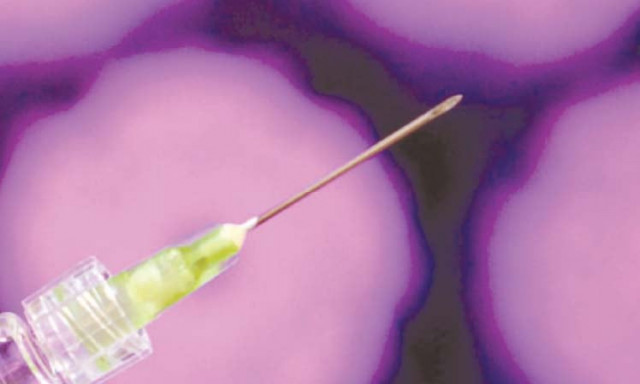Get your daughters vaccinated before they sign on the dotted line
500,000 women diagnosed with cervical cancer every year, one death every two minutes.

Then came the bombshell in March 2009: Jade had succumbed to cervical cancer at the age of 27 years. Like so many others, she had simply not known of the cancer until it was in its advanced stage, and that was just too late.
Cervical cancer symptoms are usually benign and there are little to no initial symptoms and signs. It is a disease that can strike women of any age, ethnic background, or social and economic class.
The cancer is caused by the human papillomavirus (HPV) and is simply a silent killer that nests in the host’s body for up to 15 to 20 years, so the woman finds out when it is already too late.
Cervical cancer is the second most common cancer among women and the third leading cause of cancer deaths among women globally. The global burden of cervical cancer is 500,000 cases every year, with 270,000 women dying of it globally -- that is one death every two minutes.
According to a report in the Times of India, cervical cancer is “the commonest cancer in India”.
“If detected at a pre-cancerous stage (when the cells are not normal, but are not yet cancerous), this cancer is 100 per cent curable,” says oncologist Dr Gauravi Mishra of the Tata Memorial Hospital, Mumbai.
Approximately 80 per cent of deaths related to cervical cancer occur in developing countries such as ours. Typically in Pakistan, a woman would be susceptible to this cancer from marriage onwards, with commencement of sexual relations.
But unfortunately studies have shown that a lack of awareness -- of both the disease as well as availability of the preventive vaccine -- is steadily increasing the incidence of cervical cancer in Pakistan.
A 2008 study by GLOBOCAN, a WHO project for cancer-related research, reveals Pakistan’s cervical cancer incidence is 19.5 per 100,000 in 2008 as compared to less than nine per 100,000 in 2002 -- a clearly rising trend. The same study shows deaths from the cancer at 12.9 per 100,000.
Risk levels for young girls are much higher today than before. Pakistan has in fact moved from a low risk to a moderate risk country for cervical cancer and the increasing incidence is seen especially in younger women with the disease at an advanced stage when they go to the doctor for diagnosis.
The onset of cervical cancer would not only create deep trauma to both the woman and her family, but also be unbearable in terms of the cost of treatment. Young women should therefore be vaccinated before marriage, as this is the most effective option for prevention from the disease.
In fact, this should really be a part of the protection that parents provide to their daughters. An easy and practical action is simply a visit to the gynaecologist, who would advise the best course of action for the bride-to-be. Such a prior visit could be the parents’ most precious gift of all -- timely vaccination would provide a future free from the trauma of this cancer. Among other things, the gynaecologist would clarify that cervical cancer is not a hereditary disease and that any woman can acquire it.
[Ed’s note: About a month or so ago, a new vaccine Cervarix became available in the Pakistani market. It costs Rs4,700 and a woman will need three doses.]
As cervical cancer is caused by a virus, it can be prevented if an effective vaccine is available. And such vaccines are indeed available, and all women, whether young or not, deserve such protection. I strongly suggest no delay in this matter; parents must do what’s best for their daughters and get that appointment sooner rather than later.
Dr. Hashmi is a healthcare services manager with the Health Awareness Society
Published in The Express Tribune, November 6th, 2010.



















COMMENTS
Comments are moderated and generally will be posted if they are on-topic and not abusive.
For more information, please see our Comments FAQ